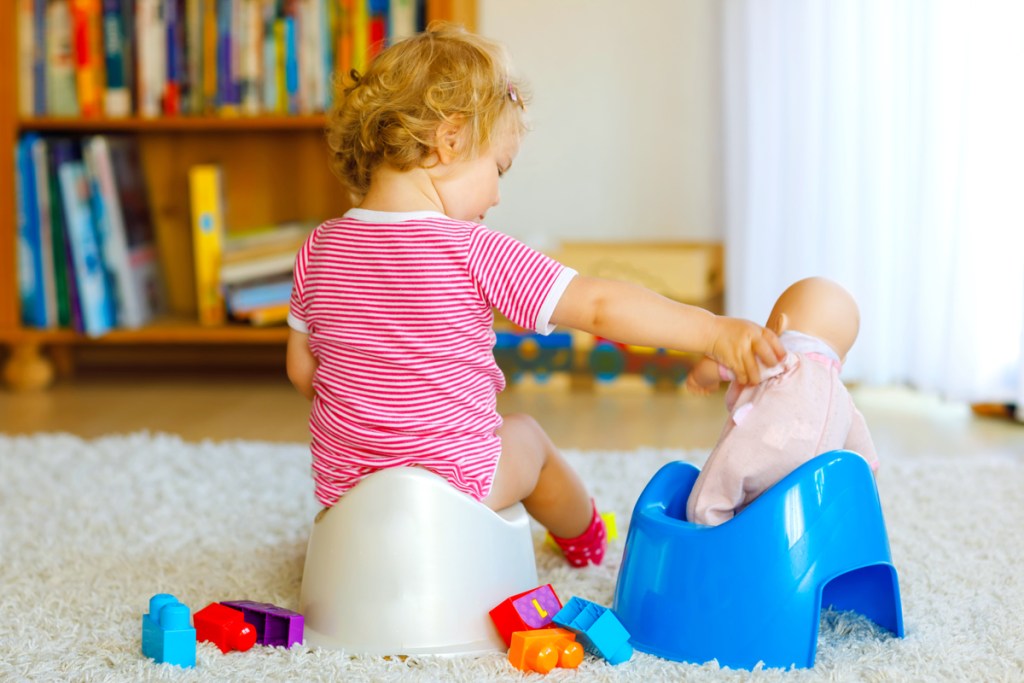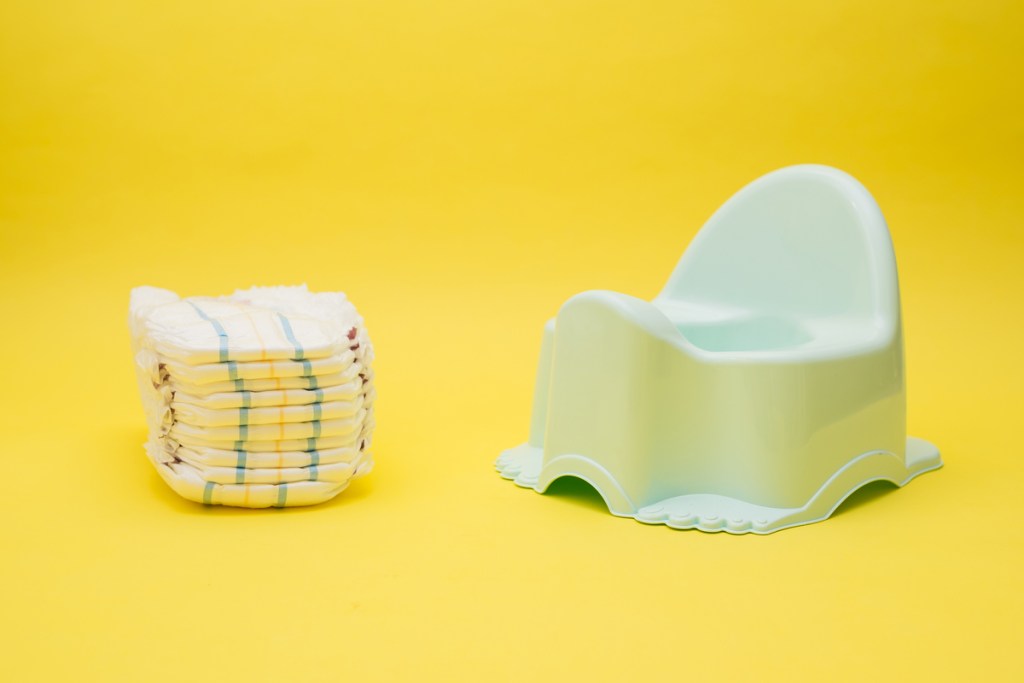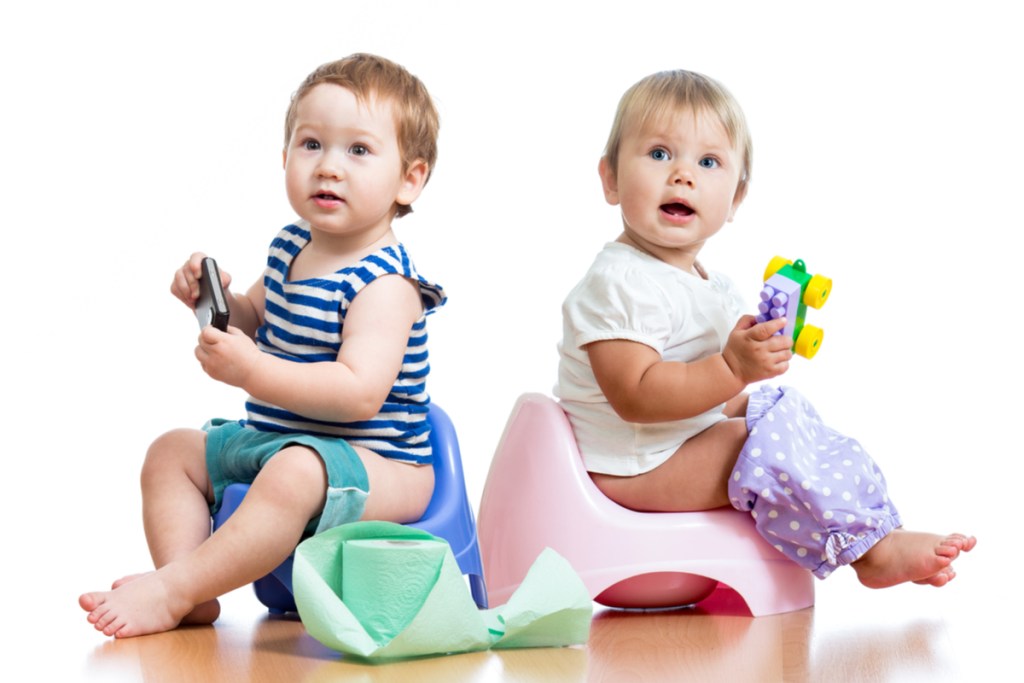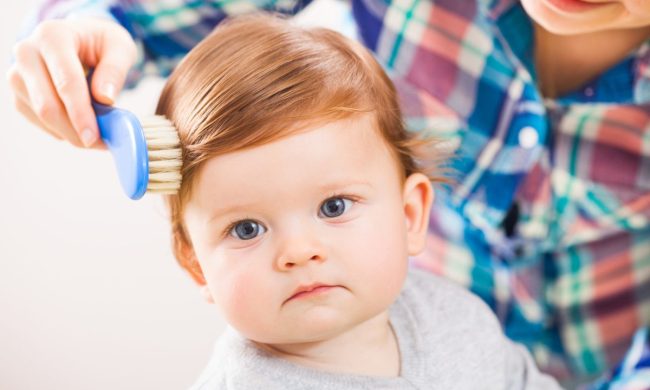With toddlers, every day is an unknown adventure. When it comes to potty training, the adventures can contain countless side quests. If you are wondering if it’s the right time to start potty training your child, you’ll want to look for a few things before you buy that first pack of pull-ups. Potty training a toddler should be an exciting time for both of you.
But if you try to start before they show signs they are ready, you could be left with both of you having a meltdown. Ask yourself, “Is my toddler ready to be potty trained?” Then, check out these potty-training tips to see if it’s the right time to start.

Your toddler is capable of doing things on their own
If they can
- Undress
- Get dressed
- Get their shoes on
Can your toddler get themselves undressed and dressed without help? If your child can independently do tasks like dress themselves and get their shoes on without you, you can give potty training a thumbs up. They’ll be able to maneuver their pull-up and wash their hands just fine.
You notice fewer full diapers
Things to look for
- Wakes up from a nap still dry
- Hours in between wet diapers
- Regular bowel movements
Once your child starts having fewer and fewer wet diapers, it’s a sign their bladder has more control. If you have a good couple of hours in between wet diapers, that’s a good sign to give it a go.
When your child has regular bowel movements that can be tracked easily, that’s great. Having a good idea of when you need to get your child on the potty will be extremely helpful. You’ll have fewer accidents if you know your child’s usual time to go.

Your child hates to be wet
If your toddler tells you when they need to the bathroom, get excited! When your child tells you they have gone to the bathroom, they are at that point of knowing when they would need to get on the potty.
When your toddler gets grossed out by wearing a wet diaper, you can show them how to use the bathroom. If they tell you when they need to go to the bathroom before they’ve actually gone, that’s even better.
Your little one hiding in the corner or behind a chair when they go to the bathroom is another sign. Those little giveaway grunts show you that your kiddo is ready to give the potty a try.
Don’t rush it
You want to stop spending so much money on diapers. We get that. But if you rush things, it will make it worse. Accidents will happen more often, your toddler will get agitated, and the whole process will take way longer.
Don’t let the fact that your friend’s child potty trained at 2 years old in 2 weeks get you freaked out. Good for them, but don’t compare your child. Each kid will be ready in their own time. Pressuring them into potty training will traumatize them (and you) so don’t do it.
If your child isn’t exhibiting the signs they are ready, leave it alone for a while and try again later. Some kids don’t potty train until they are about to start school, and some pick it up when they turn one. You want them to want to get out of those diapers.
Familiarize your toddler with the bathroom
To help your little one get ready to use the potty, give them a tour. Show them how the toilet works. Make sure they wash their hands in the bathroom often so they are used to it. Explain to them the whole process.
As much as you hate going to the bathroom with an audience, letting them in there with you while you go will be helpful. Toddlers are visual people, so letting them see how it works will be beneficial for them. You know you haven’t gone to the bathroom alone in years anyway, so letting them see how it works won’t be that big of a deal.

Get the tools ready
Things to have ready
- Pullups
- Potty chair
- Easy to pull down clothes
If you have everything ready to go, you will feel better prepared. You can get a potty that sits on your existing toilet or a little chair for them to sit in the bathroom. Find out which your toddler would prefer. If your child is too scared to sit on the big toilet then they won’t want to try it.
Switching over to pullups is important. It’s all about independence with your child. You also want to make sure they are in easy-to-pull-down clothes. You don’t want to put your kid in overalls or jeans and expect them to make it on the toilet in time.
Take it all in stride
Remember that it shouldn’t be a battle. You should only praise your child when they do go. Keep these potty training tips in mind before you start and you and your toddler will have an easier time of it.
Your toddler should be the one in the lead with this one. As with any developmental milestone, you need to let your child hit it when they are ready. But when your toddler decides that they are done with diapers, celebrate it and enjoy not having to worry about if you packed enough for your trip to the park.



